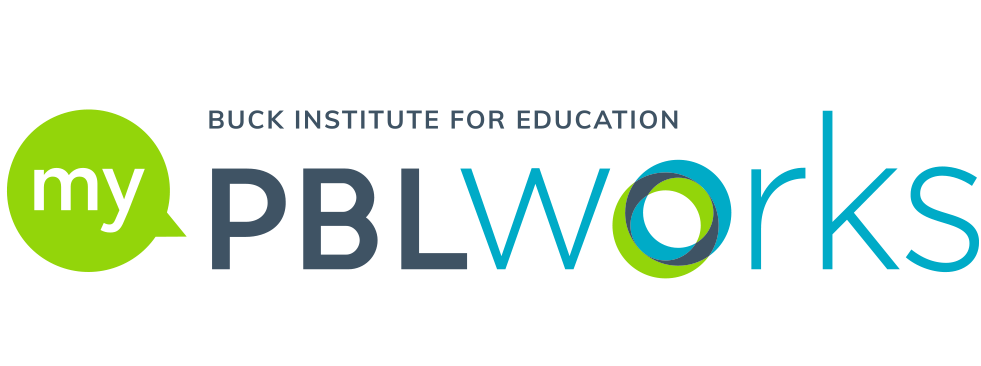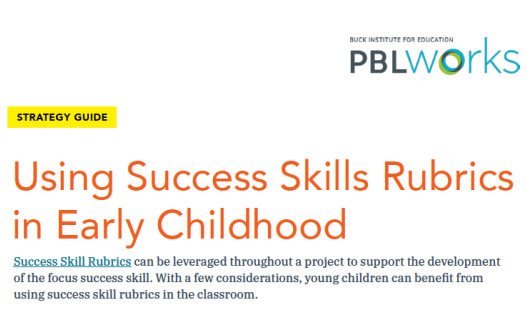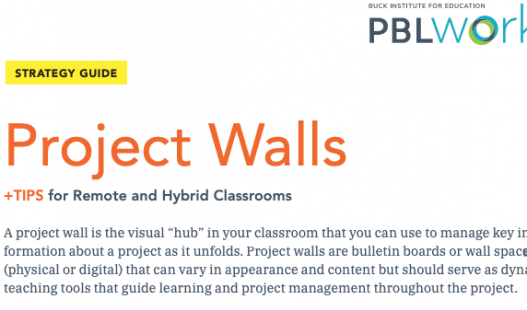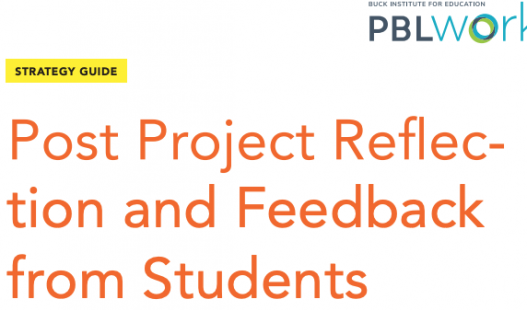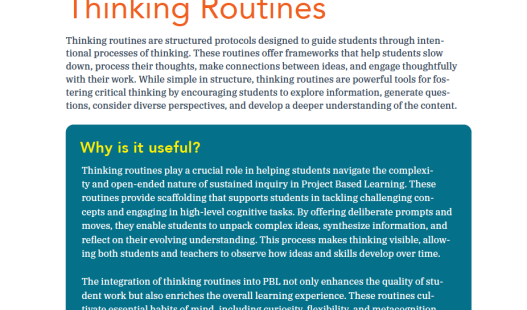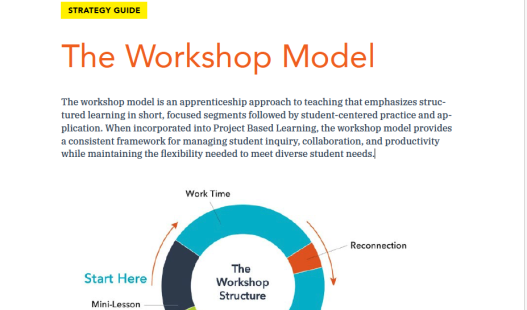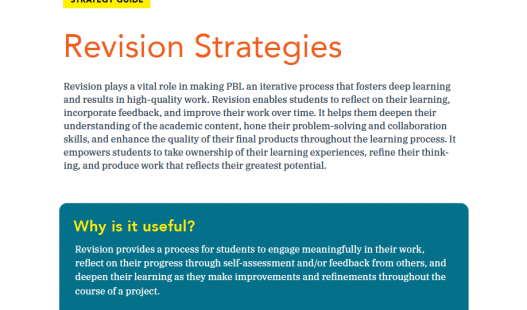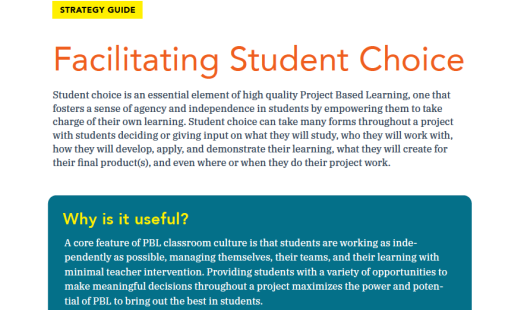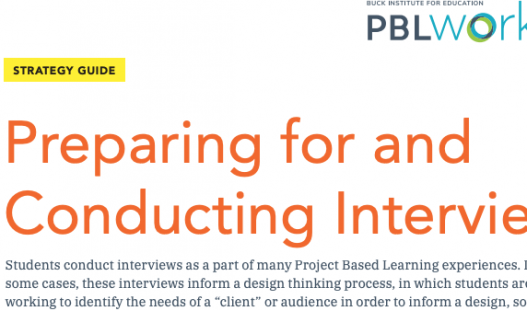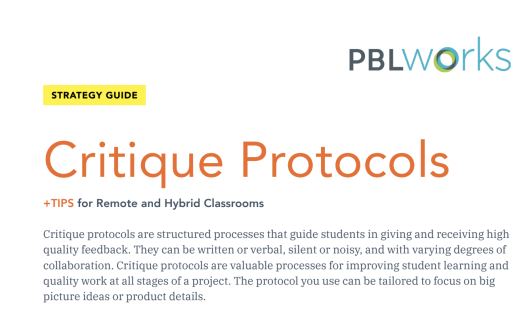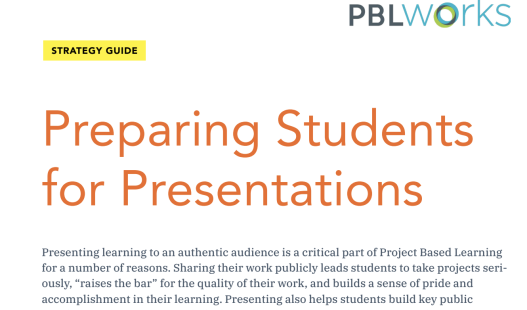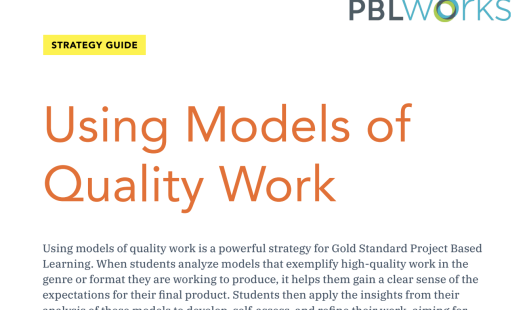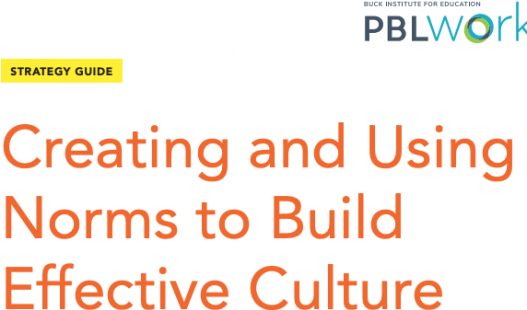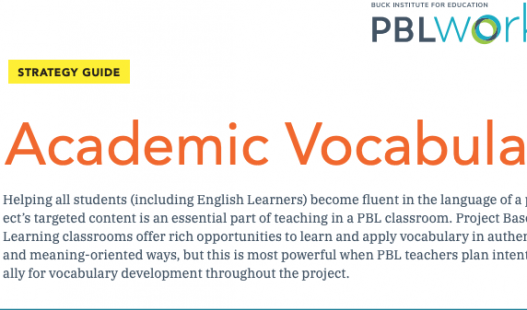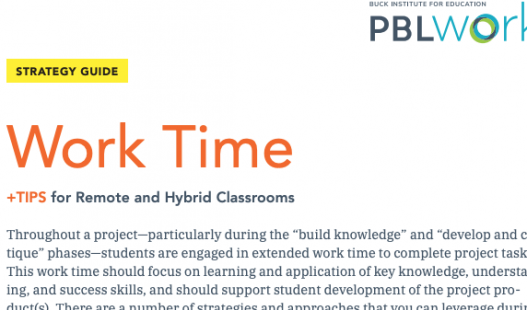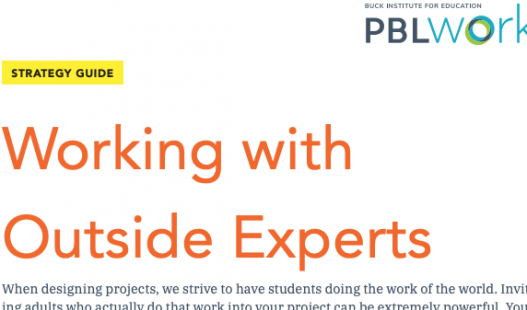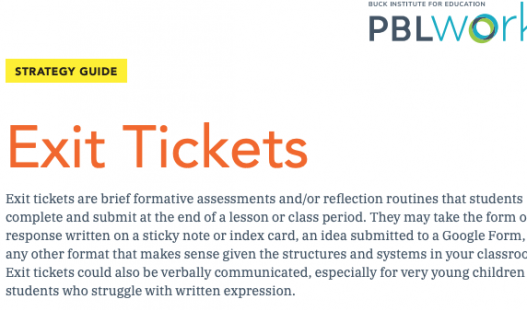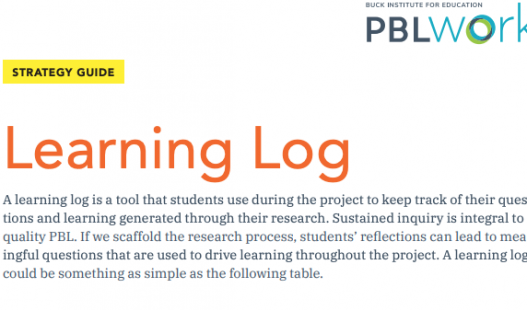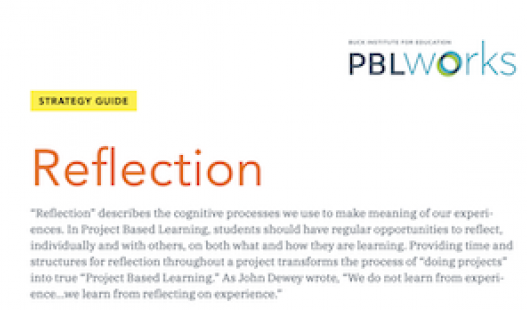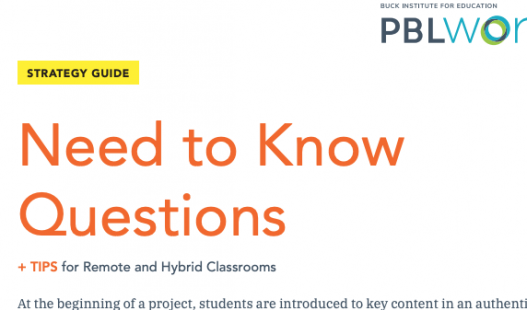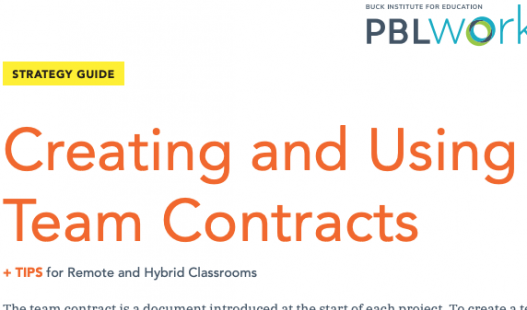25 Results
Success Skill Rubrics can be leveraged throughout a project to support the development of the focus success skill. With a few considerations, young children can benefit from using success skill rubrics in the classroom.
How to use project walls to manage and display student learning in the classroom.
Just as you encourage students to accept critique and revise their work, you should use critique processes to inform your revision of projects. This strategy guide offers guidance on how to request and use student feedback to refine your projects.
Thinking routines are structured protocols that guide students through intentional thinking processes. These routines offer frameworks that help students slow down, process their thoughts, make connections between ideas, and engage thoughtfully with their work.
The workshop model is an apprenticeship approach to teaching that emphasizes structured learning in short, focused segments followed by student-centered practice and application.
Revision plays a vital role in making PBL an iterative process that fosters deep learning and results in high-quality work. Revision enables students to reflect on their learning, incorporate feedback, and improve their work over time.
Student choice is an essential element of high-quality Project Based Learning, one that fosters a sense of agency and independence in students by empowering them to take charge of their own learning.
Students conduct interviews as a part of many Project Based Learning experiences. In some cases, these interviews inform a design thinking process, in which students are working to identify the needs of a “client” or audience in order to inform a design, solution, or communication strategy.
Critique protocols are structured processes that guide students in giving and receiving high quality feedback. This guide offers strategies for implementing peer critique protocols that enhance learning and improve the quality of student work.
Effective preparation for presentations helps students build project management, collaboration, and communication skills and ensures that their presentations are high-quality and impactful.
Using models of quality work is a powerful strategy for Gold Standard Project Based Learning.
Norms are the agreed upon rules that build a productive, self-driven, and respectful culture. These norms, especially when co-created with students, can serve as the “north star” or guiding philosophy for all that happens in a classroom.
Helping all students (including English Language Learners) become fluent in the language of a project’s targeted content is an essential part of teaching in a PBL classroom.
Throughout a project—particularly during the build knowledge and develop and critique phases—students are engaged in extended work time to complete project tasks.
In designing projects, we strive to have students doing the work of the world. Inviting those who actually do that work in the world into your project can be extremely powerful.
Exit tickets are brief formative assessments and/or reflection routines that students complete and submit at the end of a lesson or class period. This guide includes strategies for using exit tickets to support assessment and reflection within the context of PBL.
A learning log is a tool that students use during the project to keep track of their questions and learning generated through their research. This guide offers strategies for teaching students to use learning logs to support inquiry throughout a project.
In Project Based Learning, students should have regular opportunities to reflect, individually and with others, on both what and how they are learning. This guide provides a framework and strategies for supporting reflection on learning throughout a project.
At the beginning of the project, students are introduced to key content in an authentic context via a stimulus or hook, which in PBL we call an entry event.
The team contract is a document introduced at the start of each project that asks project teams to think through and agree on how students will individually contribute to the team, how the members will work together, and how problems will be solved when they arise.
